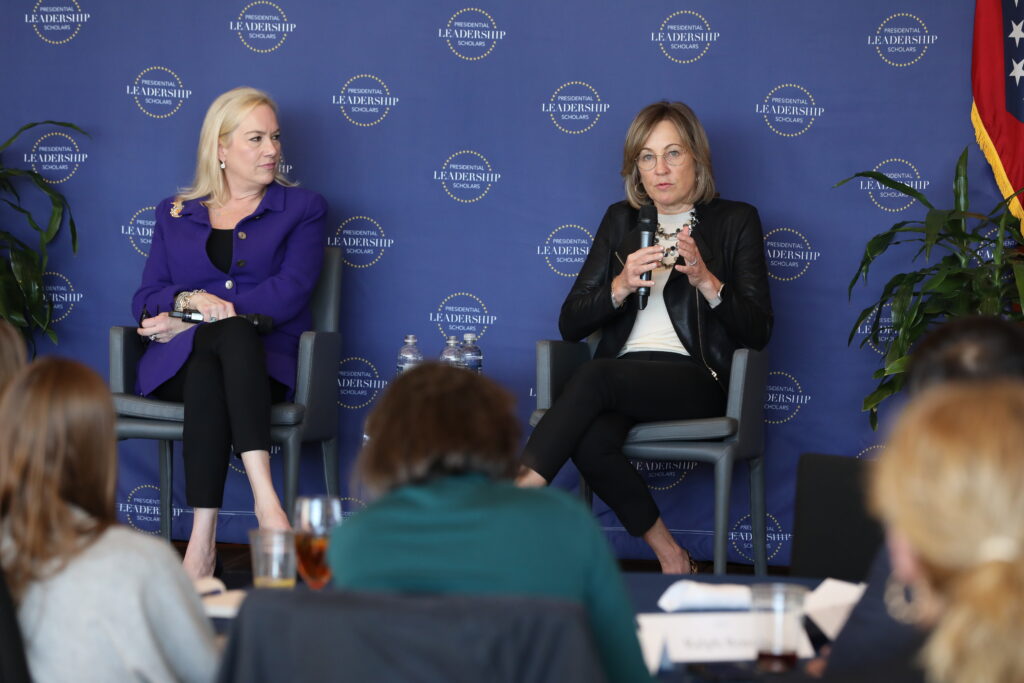Former Press Secretary Dee Dee Myers on her experience in the White House, the influential women from her childhood, and what it means to her to be a woman in leadership
When Dee Dee Myers entered the White House in 1993, she was a trailblazer – the first woman and the second-youngest person to ever serve as press secretary to a president.
The role came naturally in some ways because Myers grew up in a family of trailblazers: Her grandmother, widowed at 35, raised five children alone and put them through college. Her mother didn’t finish college, but returned when Myers was in high school to get her degrees. Neither woman allowed others’ perceptions of them to affect them.
“Those two role models of women both encouraging me and living their own [lives], and not necessarily conforming to what the social norms at the point in time were, were very influential for me, and I think one of the things I learned was that, you know, leadership comes from life experience,” she told the 2024 class of Presidential Leadership Scholars last month in Little Rock, Arkansas.
There’s not just one path to leadership, she noted in a conversation with Clinton Foundation Executive Director Stephanie Streett during Module Two of the program.
“I’ve always been surprised by where I am and how I got there,” she said. “Be a little flexible and a little open. I think you’ll find that it’s not going to go the way you thought it would, probably, but it’s what you make it.”
Myers also spoke about the internal and external pressures she felt working as a young woman in a primarily male environment.
Initially, she didn’t think she was afforded the same authority her male predecessors would have been when addressing reporters in the briefing room. She found her way through it on her own, but now acknowledges that she should have asked for help.
“One of my regrets is that I didn’t reach out more to women that would’ve helped me,” she said. “Because I felt like I was already starting from behind, I thought that would be perceived as a sign that I didn’t know what I was doing – and that was a mistake on my part. I really encourage you to always try to find people who will help you. It’s a strength to go to people who might know more than you or might see things differently than you and who are willing to be helpful to you.”
Things have improved for women in many ways over the past decades, but the country is still having conversations about how to help women penetrate leadership models.
But “when Jen Psaki became President Biden’s first press secretary, no one batted an eye,” she said. “There were no stories about a girl press secretary. So that to me is big, and I felt this incredible satisfaction that we’d gotten to that point and that there have now been many female press secretaries at the White House.”
Her top tips for the Scholars were to cultivate strong relationships and embrace flexibility on their leadership journeys.
“Keep adding to relationships and bringing a little humility and grace to others, particularly in this tumultuous time,” she said. “Everybody’s got a lot going on, and so if we could just show a little bit of grace, I think that can help not just us get through it, but help other people get through it. And together we can move further. Might take us a little longer, but together we can go further.”

